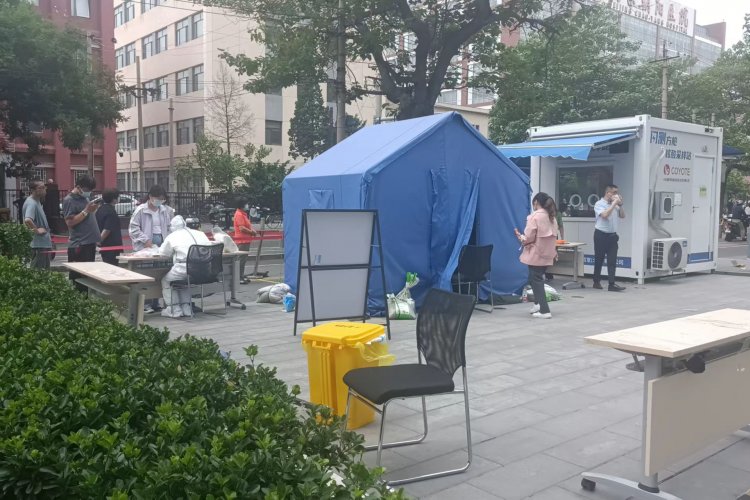Online Support Taking Control of Your Mental Health in Beijing
Living with a mental illness can be frightening at times. Living in Beijing with a mental illness, when you’re not sure what help is available to you, and without the necessary language skills, can be even worse.
Thankfully, the internet, so frequently blamed for increased anxiety and social isolation, can also be an invaluable resource in making sure you get the help you need, wherever you are. Whether you’re looking for licensed counselors who speak English, or need a helping hand getting your self-care routine back into shape, it can all be found online.
Online Counseling
When it comes to therapy, Beijing’s options are likely to leave a hole in your wallet, and most of our insurance policies offer scant coverage for mental health treatment. This is why, after a desperate night of researching, I came across online therapy.
Talkspace and BetterHelp are examples of two apps that can help link clients to licensed therapists based in the United States, giving you access to therapy via their secure online messaging services. The therapists are knowledgeable in an array of specific conditions, from depression and anxiety to eating disorders and borderline personality disorder. They can also provide marriage counseling.
Upon signing up, users are asked to fill out a questionnaire about their situation and perceived issues before being provided a few counselors to choose from. Read their bios, check out their specialties and working methods, and you’re ready to go!
As for payment, contracts can run for as low as USD 35 per week (RMB 240, PayPal and overseas credit cards are accepted), which covers a text message to your therapist twice a day. You can also purchase live chat sessions, video sessions, or even phone sessions (which may prove difficult given the time difference). All in all, the prices are cheap compared to the RMB 2,000-plus you would have to fork out for a session with a therapist at one of Beijing’s international hospitals.
Though online therapy does move slower than therapy in person, especially if you’re messaging via text only, it doesn’t mean that it’s not helpful – as with anything, what you get out of it depends on the effort you put in. Texting may also be a useful way to get over any initial nerves you may have about speaking to some about your problems, helping to overcome that hurdle with a touch of anonymity. Even better, you don’t have to travel for appointments or worry about taking time off work.
Other Online Resources
If online therapy isn’t right for you, there are other apps which can help improve your self-care routine and mental wellbeing, even if you don’t live with an ongoing mental illness.
Mood tracking – Daylio

Mood tracking is an important way to create links between your habits and your moods. Daylio is a free mood tracking app that helps you remember how you felt after various activities, in order to help you decide what you need to do more or less of on a daily basis.
Sleep – Sleep Cycle

Tracking your sleep cycle can help improve your quality of sleep and therefore your quality of life. Closely monitoring “zzz’s” is a good way to take care of yourself, as a lack of sleep can impair functioning in the day and in more extreme cases lead to the deterioration of mental health. In the absence of an Apple Watch or a similar fitness tracker, the Sleep Cycle app monitors your sleep (place your phone in your bed or on your bedside table) wakes you up during the lightest phase in your sleep cycle, giving the impression of having awoken naturally, and displays how you slept throughout the night. A year‘s subscription costs USD 29.99 (RMB 205).
Meditation – Calm or Headspace


These meditation apps have the same goal: to provide a regular chance to escape to an oasis of peace in our hectic world. Both guide users through the process of taking a moment to be in the present, and are thus perfect for beginners new to this mindfulness skill. There are a number of free meditations on each app, but full access requires membership (Calm is priced at USD 59.99 (RMB 410) for a year, with new moments of calm every day and over 100 guided meditations, whereas Headspace costs around USD 95 (RMB 650) if you commit to a year).
Coping strategies – What’s Up?

This free app gives instant tips on how to help yourself feel better, coping strategies to get through tougher times, and also information on different diagnoses if you’re concerned about ongoing or developing symptoms.
Note: Therapists are of course unable to give out medical advice when it comes to pharmaceutical interventions, for which you would need to see a qualified doctor. None of these platforms are able to help in life-threatening situations and in a serious crisis, you should seek urgent medical help.
Rather find face-to-face help? Check out these mental health resources for rockier times.
Images: Unsplash, courtesy of the apps







